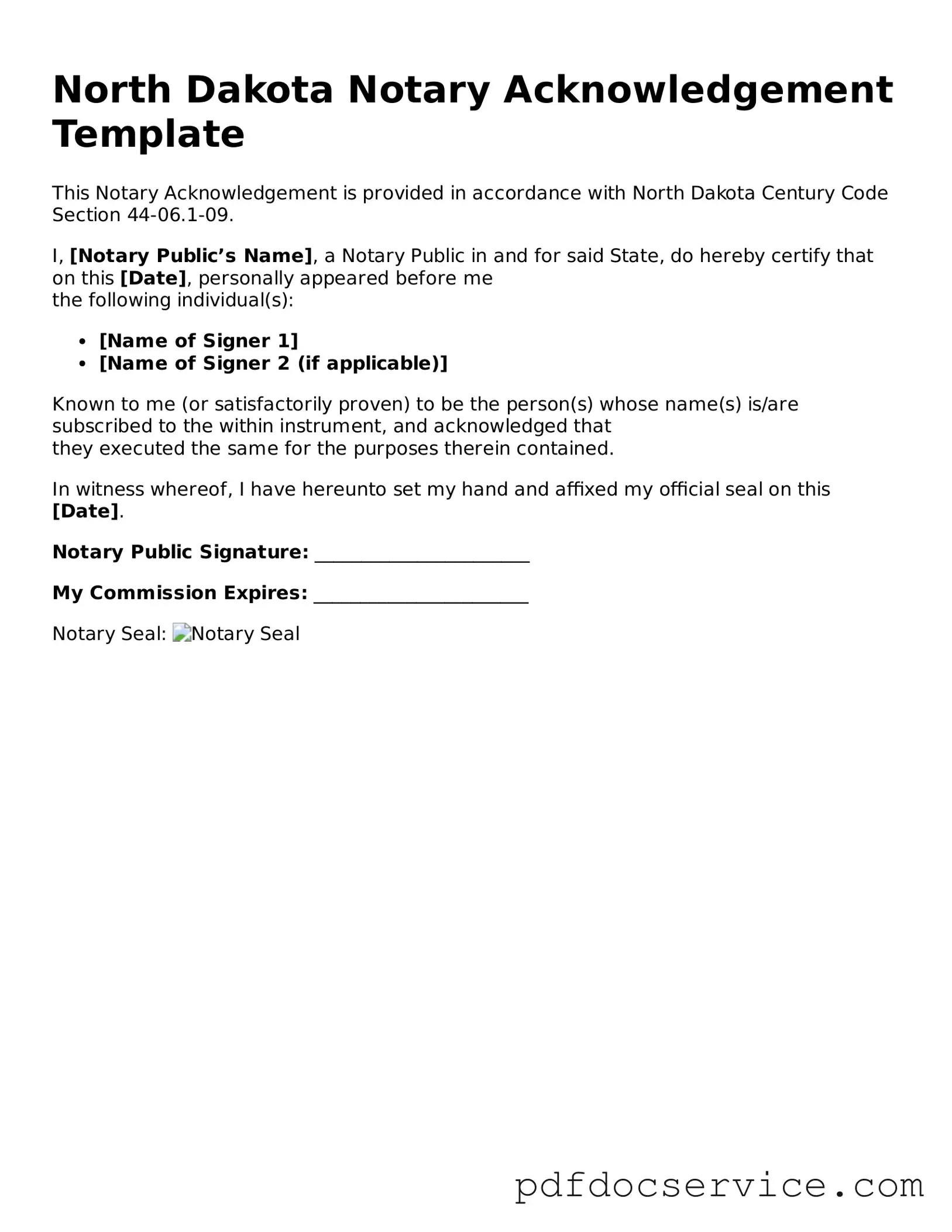The North Dakota Notary Acknowledgement form is a document used to verify that a person has signed a specific document willingly and in the presence of a notary public. This form serves as proof that the signature is authentic and that the signer understood the contents of the document at the time of signing.
This form is typically used by individuals who need to provide a legal document, such as a contract, deed, or affidavit, that requires notarization. It is important for anyone who wants to ensure their document is legally binding and recognized by courts or other institutions.
How does the Notary Acknowledgement process work?
The process involves several key steps:
-
The signer must appear in person before the notary public.
-
The notary will verify the identity of the signer, usually by checking a government-issued ID.
-
The signer will then acknowledge that they are signing the document voluntarily.
-
The notary will complete the acknowledgment form, affixing their seal and signature.
Is there a fee for notarization in North Dakota?
Yes, notaries in North Dakota are allowed to charge a fee for their services. The maximum fee is typically set by state law. It is advisable to confirm the fee with the notary before the appointment to avoid any surprises.
The Notary Acknowledgement form can be used for a wide range of documents, including:
-
Real estate deeds
-
Contracts
-
Power of attorney documents
-
Affidavits
-
Wills
Essentially, any document that requires a signature can potentially benefit from notarization.
Do I need to bring anything to the notary appointment?
Yes, when visiting a notary, it is essential to bring a valid government-issued photo ID, such as a driver's license or passport. Additionally, you should have the document that you wish to have notarized ready for the notary to review.
Can I sign the document before seeing the notary?
No, it is crucial that you do not sign the document before meeting with the notary. The notary must witness your signature to complete the acknowledgment. Signing beforehand can invalidate the notarization process.
What if I cannot find a notary public nearby?
If you are having difficulty locating a notary public, there are several options available:
-
Check with local banks, as many offer notary services for customers.
-
Look for notary services online, which may offer mobile notary options.
-
Ask friends or family if they know a notary.
It is essential to ensure that the notary is licensed and authorized to perform notarizations in North Dakota.
No, the Notary Acknowledgement form is not required for every notarization. However, it is often used in situations where the signer needs to affirm their identity and the authenticity of their signature. Depending on the type of document and the requirements of the parties involved, other forms or procedures may be necessary.

